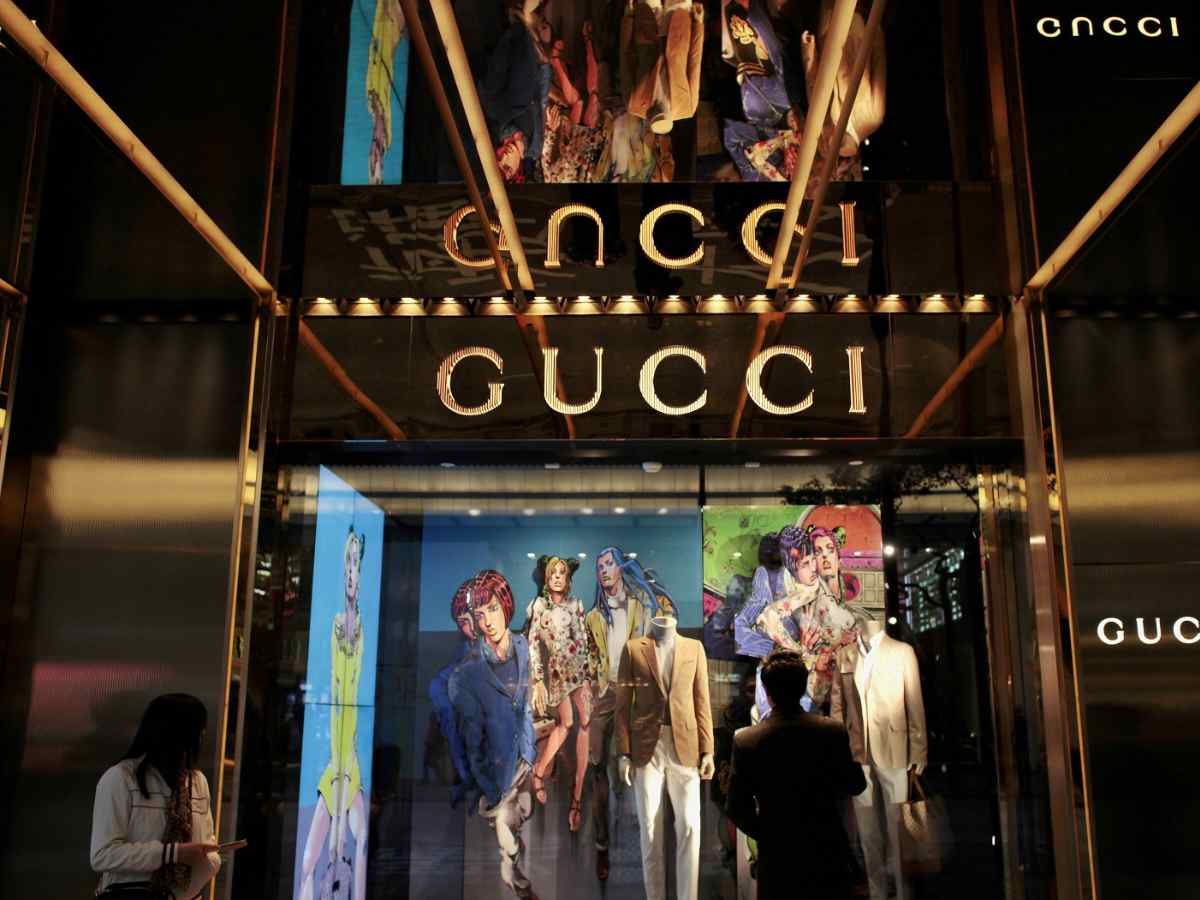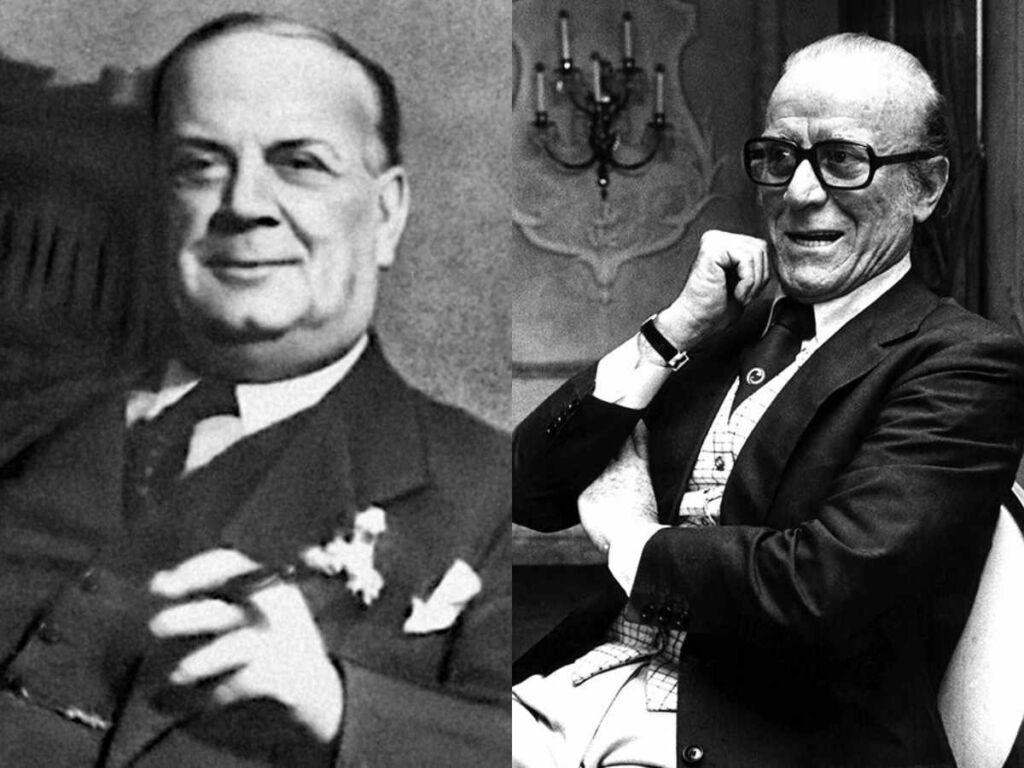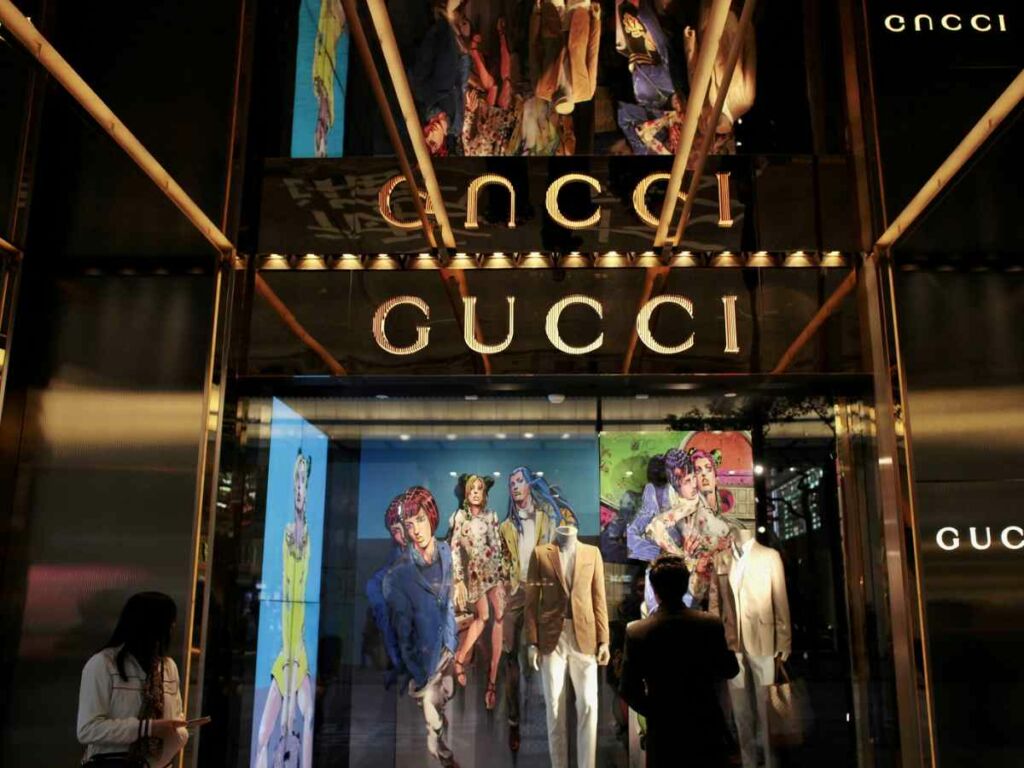Who Owns Gucci Now? Unpacking The Brand's Current Custodians
Have you ever wondered who truly holds the reins of your favorite luxury labels? It's a question many fashion lovers ask, and when it comes to a name as big as Gucci, the curiosity is understandable. This iconic Italian fashion house, known for its distinct style and storied past, has a fascinating ownership journey. So, you might be thinking, who actually owns Gucci now, as of today? It's a good question, and the answer involves a powerful global player in the luxury business.
When we talk about who "owns" something, we are really getting at who has the legal title, who holds the rights, or who ultimately controls it. Just like when you own a car or a home, it belongs to you, and you can use the verb "own" to describe that possession. For a company like Gucci, this means looking at the parent corporation that has acquired it, making it part of their larger family of brands, and that, you know, is a significant detail for such a well-known name.
Understanding who owns Gucci now helps us grasp the brand's direction, its strategies, and even its place in the wider world of high fashion. It's about more than just a name; it's about the vision and resources that shape its future. So, let's take a look at the company that has been the custodian of Gucci for quite some time, and what that means for the brand we all recognize, basically.
Table of Contents
- The Current Owner of Gucci: Kering
- What is Kering? A Global Luxury Group
- Gucci's Journey Through Ownership: A Brief History
- The Meaning of Ownership for Gucci's Identity
- Kering and Gucci's Future Together
- Frequently Asked Questions About Gucci Ownership
The Current Owner of Gucci: Kering
As of today, and for many years now, the company that owns Gucci is a French multinational corporation called Kering. Kering is a very, very big name in the luxury goods sector, and they hold a significant collection of famous brands under their umbrella. So, when you ask "who owns Gucci now," the simple and direct answer is Kering, a company that has, you know, a very strong presence in the fashion world.
Kering took control of Gucci in the late 1990s, during a time when the fashion house was undergoing a major transformation. This acquisition was a pivotal moment for both Gucci and Kering, really. It marked a new chapter for the Italian brand, providing it with the financial backing and strategic direction of a large, dedicated luxury group. This move helped to solidify Gucci's position as a dominant force in high fashion, too it's almost.
The relationship between Kering and Gucci is a deep one, with Kering acknowledging Gucci in close relation to itself, as the definition of "own" suggests. Kering provides the overall framework, while Gucci operates with a certain level of creative and operational independence, though always within the larger group's strategic vision, and that, you know, is how these big corporate structures often work.
What is Kering? A Global Luxury Group
Kering isn't just a company that happens to own Gucci; it's a powerhouse specifically focused on luxury. Founded in France, Kering has built a formidable portfolio of world-renowned brands across fashion, leather goods, jewelry, and watches. Its business model revolves around nurturing and developing these high-end labels, helping them to maintain their exclusivity and appeal globally, and that, is that, a core part of their operations.
Beyond Gucci, Kering's impressive roster includes other iconic names like Saint Laurent, Bottega Veneta, Balenciaga, Alexander McQueen, and Brioni, among others. They also own significant jewelry houses such as Boucheron and Pomellato, and watchmakers like Ulysse Nardin. This broad collection shows Kering's commitment to the luxury market across various categories, and that, you know, gives them a very wide reach.
The group's strategy involves providing its brands with shared resources, expertise in areas like supply chain and digital innovation, and financial stability. This allows each brand to focus on its unique creative identity and product development, while benefiting from the scale and support of a major global entity. It's a model that has proven quite successful in the luxury sector, apparently, allowing brands to flourish while being part of a larger, stronger whole, in a way.
Gucci's Journey Through Ownership: A Brief History
Gucci's path to being owned by Kering is quite a story, full of family dynamics, financial challenges, and strategic shifts. The brand was started by Guccio Gucci in Florence, Italy, in 1921. For many decades, it remained a family-run business, growing into a symbol of Italian craftsmanship and luxury, which, you know, is a heritage they still cherish today.
However, by the late 20th century, internal family disputes and financial difficulties began to affect the company's performance. This led to a period of uncertainty and, eventually, the sale of significant stakes in the company. In the early 1990s, Investcorp, a Bahrain-based investment group, became the majority owner of Gucci, marking the end of the Gucci family's direct control over the brand, and that, was a big change, obviously.
The late 1990s saw a fierce battle for control of Gucci, involving major luxury conglomerates. Ultimately, François Pinault's Pinault-Printemps-Redoute (PPR) group, which later rebranded as Kering, emerged victorious. PPR gradually acquired a controlling stake in Gucci, solidifying its ownership by the early 2000s. This acquisition was a defining moment, securing Gucci's future within a powerful luxury group and providing the stability it needed to thrive once more, you know, after a turbulent period.
The Meaning of Ownership for Gucci's Identity
When Kering "owns" Gucci, it means they have legal title and ultimate control over the brand's operations, its creative direction, and its business strategy. This isn't just about possessing a name; it's about guiding a powerful cultural entity. Kering's ownership implies acknowledging Gucci in close relation to itself, providing the framework within which the brand operates and evolves, which, you know, shapes everything from new collections to marketing campaigns.
This ownership provides Gucci with significant advantages. For one, it offers substantial financial resources for investment in design, manufacturing, and global expansion. Being part of Kering also means access to a vast network of industry expertise, shared best practices, and a strong global presence that a standalone brand might struggle to build on its own. It allows Gucci to take bigger risks and pursue grander visions, as a matter of fact.
Moreover, Kering's oversight helps maintain the brand's luxury positioning and exclusivity. They ensure that Gucci's production quality remains high, its marketing is sophisticated, and its retail experience is premium. This careful stewardship protects the brand's image and value in a very competitive market. So, the ownership isn't just a legal formality; it's a strategic partnership that truly impacts Gucci's day-to-day operations and its long-term health, basically.
The creative leadership at Gucci, while given significant freedom, operates within Kering's overall strategic vision. This balance allows for groundbreaking design while ensuring commercial viability and alignment with the group's broader goals. It's a delicate dance, but one that has largely worked well for Gucci under Kering's watch, allowing the brand to consistently push boundaries while remaining commercially successful, and that, is pretty remarkable.
Kering and Gucci's Future Together
The relationship between Kering and Gucci appears to be a strong and lasting one. As Kering continues to focus on its luxury segment, Gucci remains one of its most important and profitable assets. This close connection means that Gucci's future is very much tied to Kering's overarching strategy for growth and innovation in the luxury sector, which, you know, is a pretty secure place for a brand to be.
Kering is constantly looking at ways to enhance the value of its brands, whether through digital transformation, sustainable practices, or expanding into new markets. These initiatives directly benefit Gucci, helping it to stay relevant and appealing to new generations of consumers while retaining its loyal following. It’s a dynamic partnership that seeks to keep Gucci at the forefront of fashion and luxury, and that, is what makes them such a strong team, honestly.
For those who admire Gucci, Kering's ownership provides a sense of stability and continued investment in the brand's creative output and global presence. It means that the iconic designs, the quality craftsmanship, and the bold vision that define Gucci are likely to continue for the foreseeable future. So, when you see a new collection or a new store opening, you can be sure that Kering's strategic backing is a significant part of that success, and that, you know, is something to consider.
To learn more about how large corporations manage their diverse brand portfolios, you might want to explore resources like a well-known business publication that covers corporate strategies. This can provide additional context on how groups like Kering oversee their various holdings, you know, and what that means for the individual brands. Find more insights on corporate strategies here.
If you're interested in the broader impact of corporate ownership on creative industries, you can Learn more about this on our site, and to understand how brands maintain their identity under new ownership, you can also link to this page .
Frequently Asked Questions About Gucci Ownership
Is Gucci still an Italian brand?
While Gucci's parent company, Kering, is French, Gucci itself maintains its strong Italian heritage. Its creative direction, design teams, and much of its production remain rooted in Italy, honoring its origins in Florence. So, yes, the spirit and craftsmanship are very much Italian, even with French ownership, you know, which is quite common for global luxury brands.
Who is the CEO of Gucci?
As of early 2024, the President and CEO of Gucci is Jean-François Palus, who took on the role on an interim basis in July 2023. His appointment followed a period of leadership transition within the brand. This role is a key part of how Kering manages its individual brands, as a matter of fact, overseeing their daily operations and strategic execution.
What other brands does Kering own besides Gucci?
Kering owns a number of other prominent luxury brands. Its portfolio includes fashion houses like Saint Laurent, Bottega Veneta, Balenciaga, Alexander McQueen, and Brioni. They also have significant presence in jewelry with Boucheron, Pomellato, and Qeelin, and in watches with Ulysse Nardin and Girard-Perregaux. It's a very comprehensive group of high-end names, you know, across different luxury categories.

Who Owns Gucci Now?

Who Owns Gucci Now?

Who Owns Gucci Now?